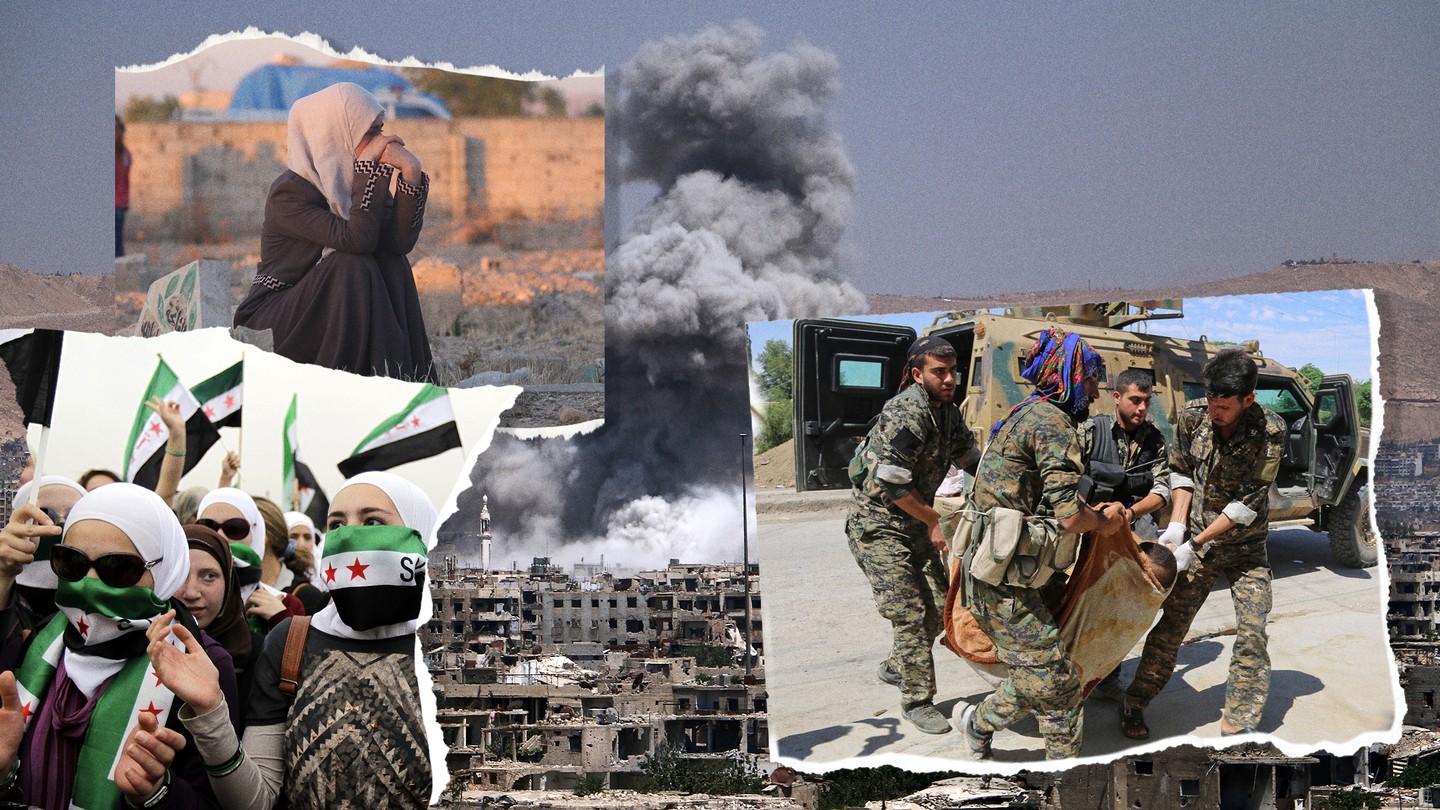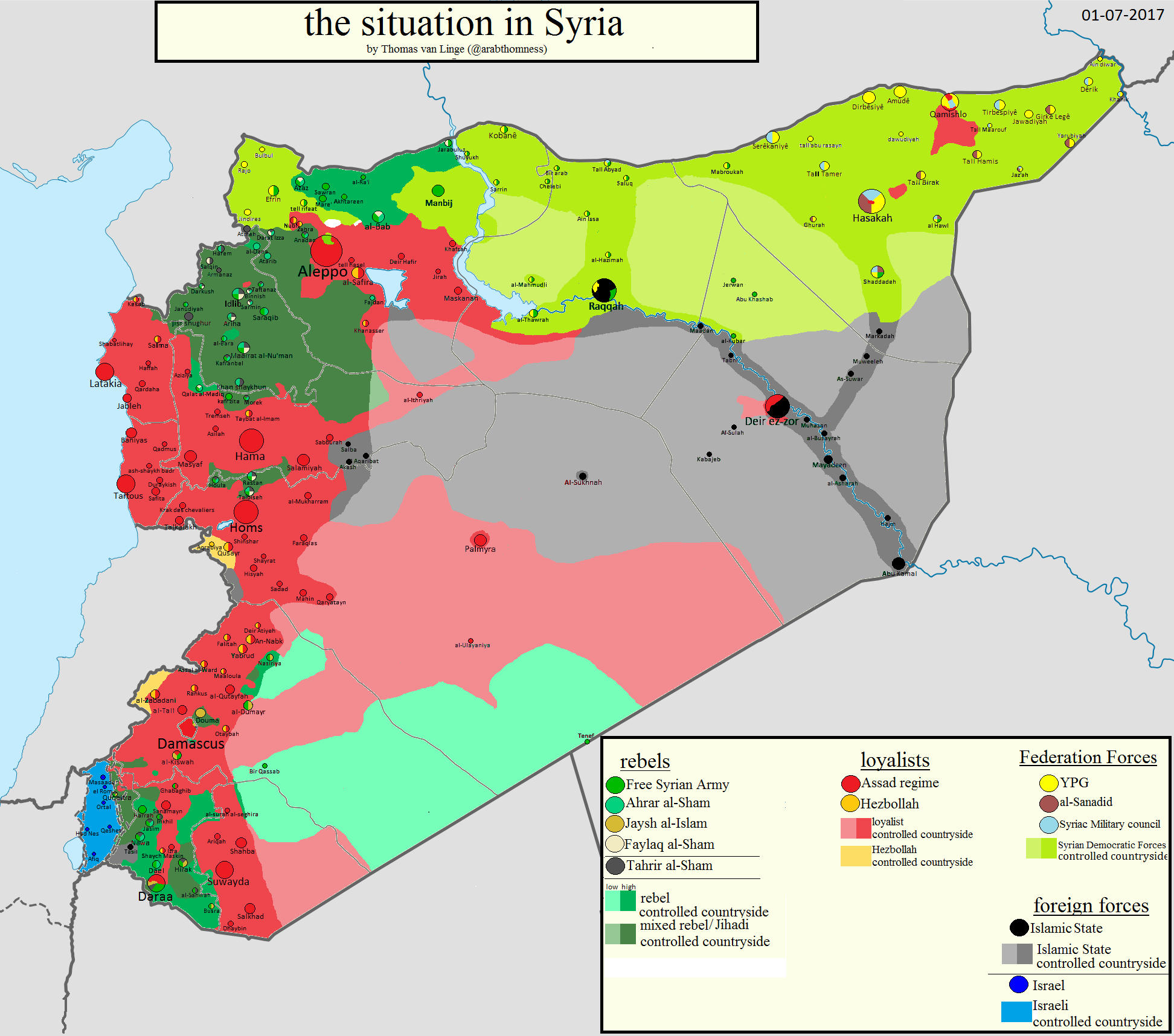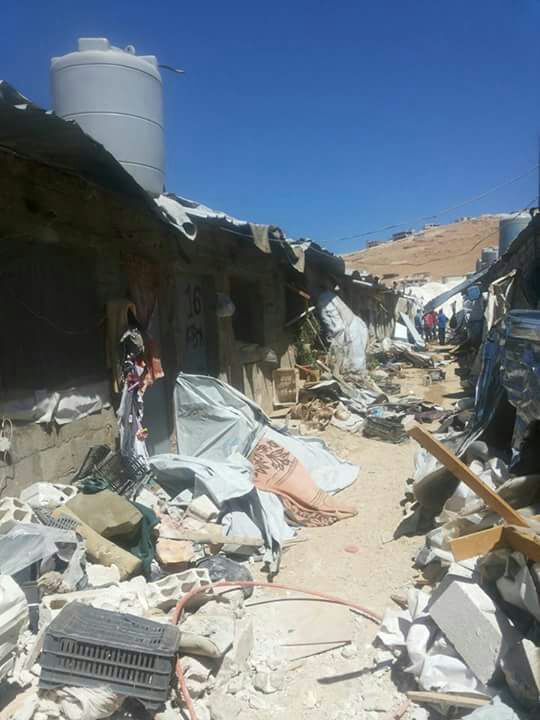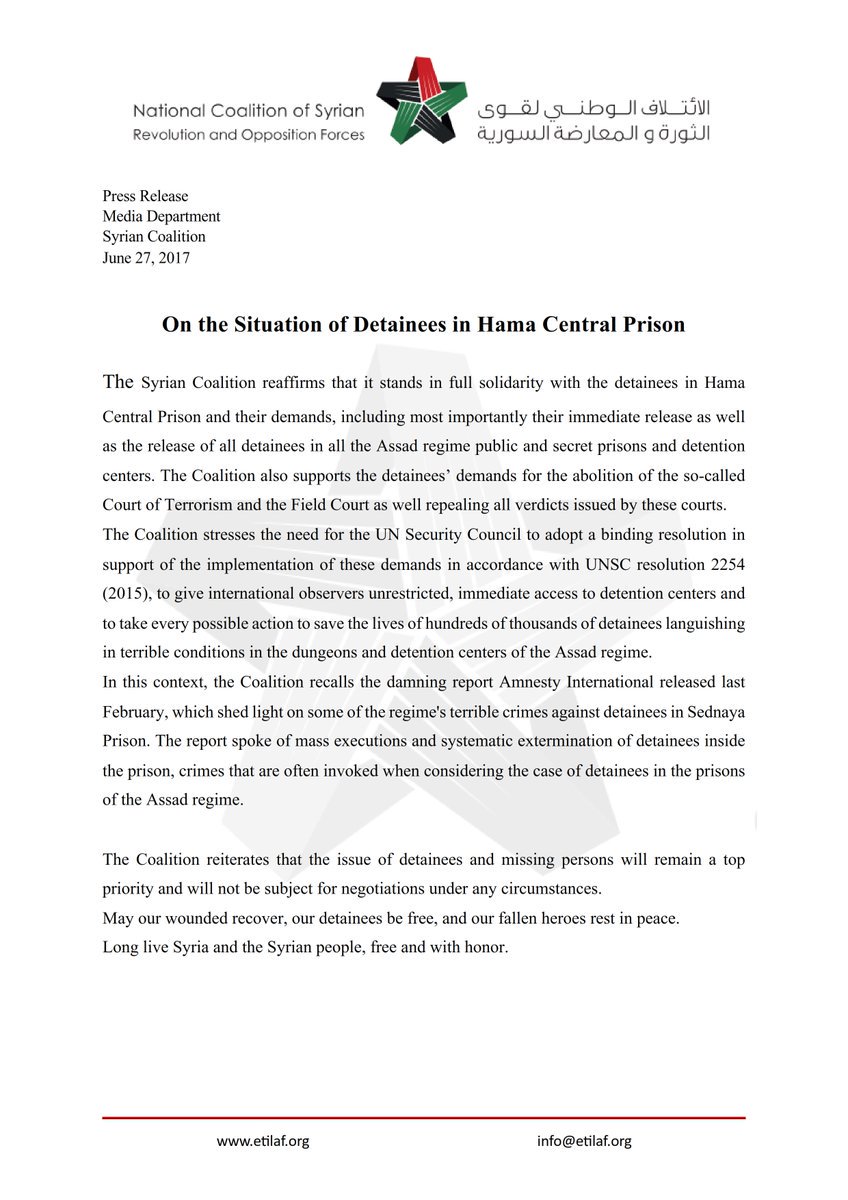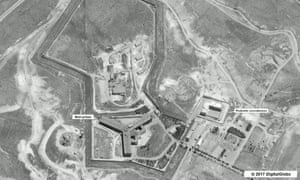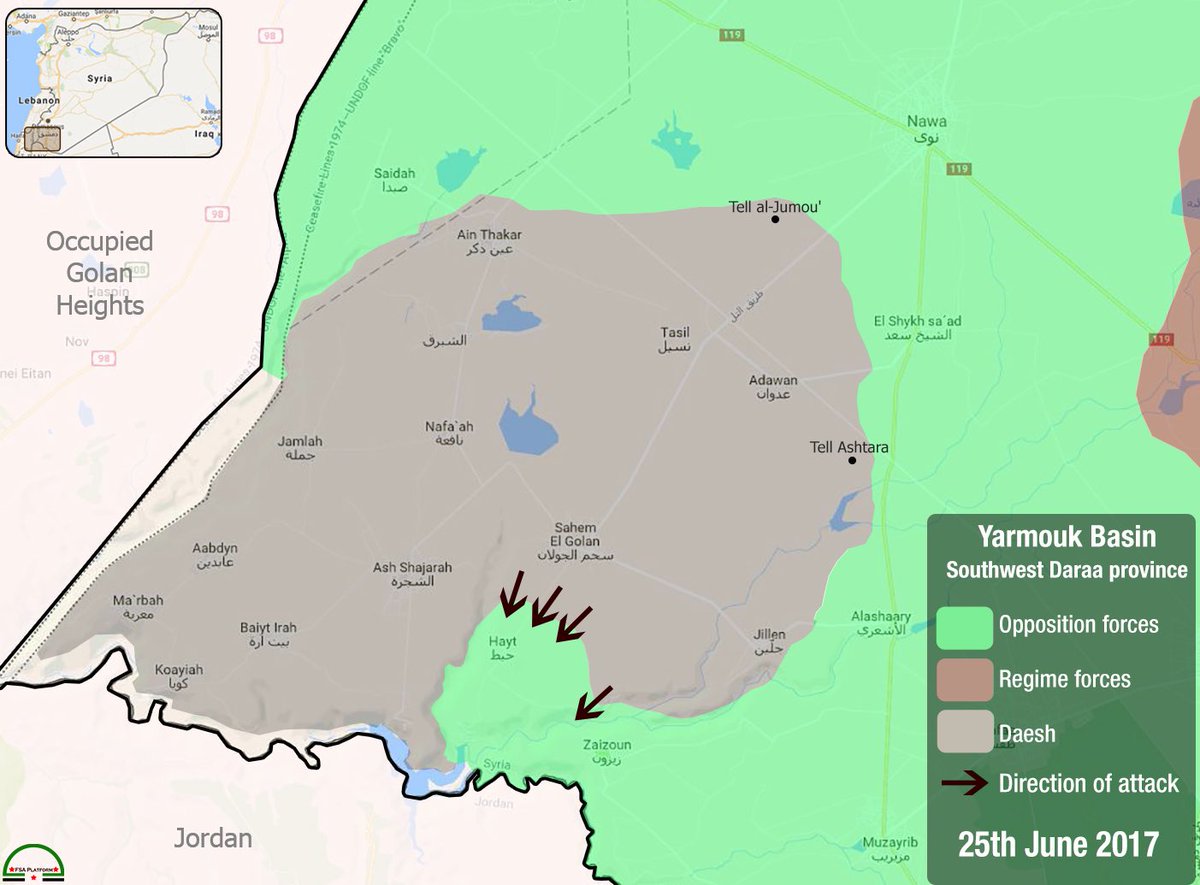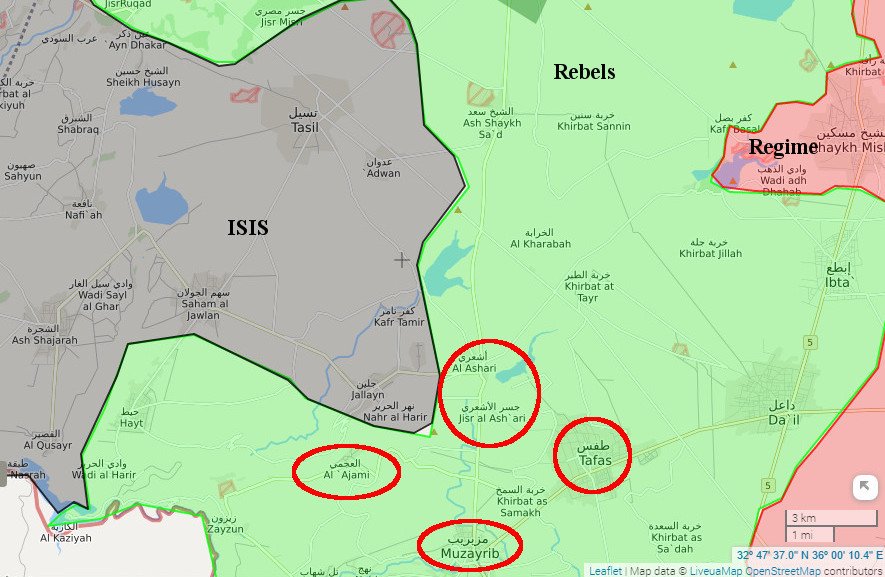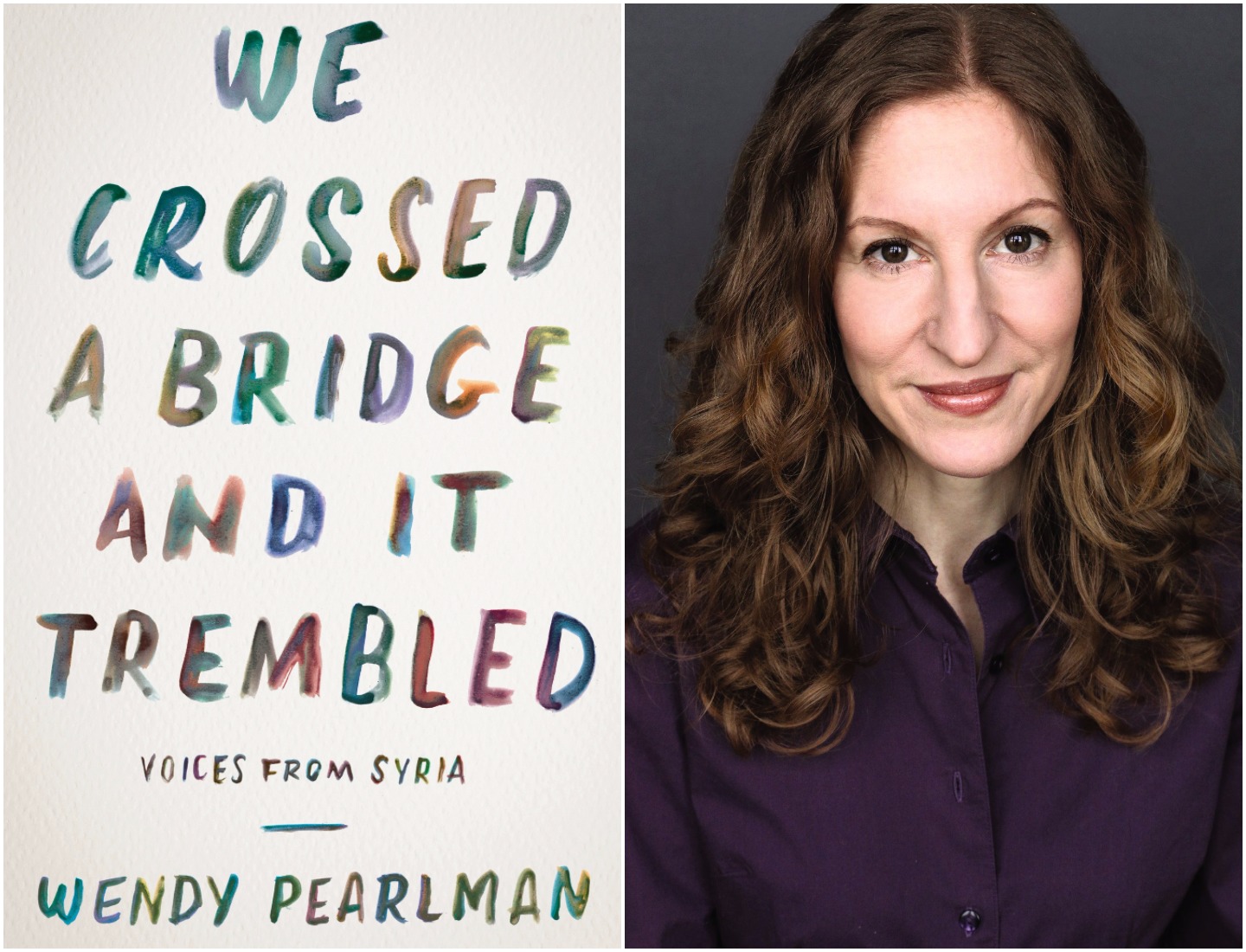
'Excerpt from "We Crossed a Bridge and It Trembled," a new book of oral histories by Wendy Pearlman.
Abdel-Samed, business owner (rural Daraa):
"The regime brought in forces to destroy Daraa completely. All of the neighboring villages held demonstrations that Friday, which we called 'the Friday of Breaking the Siege.' The regime arrested everyone there. Buses were filled with detainees. Only those who could run away managed to escape arrest.
Later, they returned the body of Hamza al-Khatib.* He's a cousin of mine and looks just like my son. He'd been tortured. They didn't leave any spot on his body without cigarette burns. His body was full of stab marks and his neck was broken. They'd cut off his genitals.
His mutilated corpse arrived and people saw what the regime had done to him. And that's when they realized that the regime was finished. There was no more trust. A delegation had gone to meet with the president, and he had promised that he would address their concerns. Instead he sent them this present. It was a way of telling them, 'Either you be quiet, or we will do this to you.'
Before this, people had some hope that the regime might listen to their demands and try to make reforms. After Hamza, people realized that the regime is on one side and the people are on another. That's it. The only thing our leaders know how to do is kill, kill, kill, kill, and kill. And after that, kill again. Kill anyone. It doesn't matter if he's a civilian or a child.
The regime went even further in terrorizing us. It said, 'We won't just kill you. We'll kill your entire family, too.' I've heard that in some countries the government only arrests the wanted person himself, not his brother or mother or sister. In Syria, the entire family and the entire neighborhood is accused and targeted."
Beshr, student (Damascus)
"We formed our neighborhood coordination committee. They cut the internet at that time, and we started to get satellite internet. I was asked to hide the satellite phone for our neighborhood. That was so dangerous that I couldn't take that decision alone, so I asked every member of my family if they agreed to have the phone in our house. Everyone agreed.
Twice, activists sent me satellite phones to deliver to other activists. I didn't know the real names of the person who was giving me the phone or the person to whom I delivered the phone. They didn't know my real name, either. The guy who gave me phones was supposed to email me anytime before he called me. Once he called me without prior notification and told me to meet him in ten minutes. I wasn't sure what to do. I phoned an activist friend, but she didn't answer. I decided to go and was just stepping out when she called back. She said, 'Be careful, this man was detained a week ago—they might be using his phone to trap you.' I asked another friend to go check on the meeting place. He went and found six security guards waiting.
My mom had always been really rigid about our studies. Once I overheard her talking to my grandma. Grandma said, 'Your son isn't focusing. He's a senior in high school now, and exams are coming up.' Mom said, 'I understand, but I can't let him down. I keep remembering how his father went to prison. We need to continue the struggle.' I felt so supported. I was like, 'Wow! I love you, Mom!'
Some time after that, the security forces came looking for me. I hid in a back room. My mom opened the door a crack and said, 'I can't let you in because I'm alone and not wearing a headscarf.' I panicked, trying to think about how I could climb out a window or something. But my mom just coolly told them that I was studying at a friend's house and that she could not allow them inside. The officers said that I should call them, and then went away. Mom was so calm the whole time. I have no idea how.
Ghayth, former student (Aleppo)
During the peak of demonstrations at the University of Aleppo, women played a huge role. Women who wore headscarves would hide papers and signs in their long coats, because they wouldn't get searched. The male dorms had so many demonstrations that the authorities closed them down. Only female dorms remained open, so women took charge of organizing, and then would pass information on to the guys. If the security forces attacked male demonstrators, women would stand in their way; at that time, security of officers saw touching women as a red line. A lot of women really came to the rescue.
Ayham, web developer (Damascus)
"Damascus was extremely controlled. You could see secret police everywhere. It was like that guy on Game of Thrones who has those birds, as he calls them. But the beautiful thing for us, the mesmerizing thing, was that at some point we stopped giving a shit. We were afraid, but we were just too excited. You've been suppressed for so long and suddenly the lid comes off. The idea of being able to speak was captivating.
Everybody said that the regime would collapse during the month of Ramadan, because instead of gathering at the mosque for prayer only on Fridays, people gathered every night. The atmosphere was pumped with energy.
The 27th of Ramadan is a holy day, and people stay up all night praying and reading the Quran. Every year over 5,000 people gathered at the mosque near our house. Volunteers from the neighborhood helped prepare a meal for people to eat before sunrise. I don't pray, but I always participated in preparing the meal, because I thought it was a beautiful social event.
People started arriving. There were a lot of old people, but also guys with body piercings and strange haircuts. You could see that they had no idea what to do. Some guys were wearing shorts, which you aren't supposed to do in a mosque. Out of respect, they were trying to pull their shorts down toward their ankles. But that exposed their backsides. It was a beautiful scene of the complex social fabric that we had in Damascus.
Thousands of security of officers surrounded the mosque. It looked like a scene from King Arthur. They were just standing there with sticks and shields and angry faces. We were arranging the food and had a long argument about whether to bring meals to the officers outside. A lot of people said, 'No, they don't deserve it.' Others said it was a gesture to show we meant no harm. They were young soldiers. People like us, basically, doing their military service.
Three or four brave guys took boxes filled with meals to the commanding officer. They said, 'We come in peace. This is for you because you're standing here all night.' The officer responded, 'Take this back inside or I'll kill you.'
The prayers started and the imam said, 'God protect us from those who harm us.' People started shouting, 'Amen! Amen!' It's a religious word and the majority of people there knew nothing about religion. But you could see them crying and shivering. I don't believe in prayer, but I believe in the emotional charge that prayer carries. You know what it's like, when you believe in a cause and you're standing with people who also believe in it? And you're surrounded by threat and you can feel the fear?
Prayer ended. Silence. Then one person shouted, 'Freedom!' Others stood up and started shouting their lungs out. Old people grabbed their shoes and fled.
And then: chaos. Everything turned into a battle. The soldiers started throwing rocks. And that's when we realized our big mistake: Someone had donated juice for the meal, and it was in glass bottles. People started throwing bottles at the officers. You could hear glass shattering.
The regime had snipers all around and one guy in the courtyard got shot in the head. People rushed back inside and police ran in behind them. Some people were on the second-floor balcony. If they got caught they were going to get arrested or killed. So they started jumping down or hanging on to the curtains. Everything got destroyed.
Inside, we got word that Damascus's big imams were negotiating with the chief of police. The sun came up and eventually they said it was safe to leave. We opened the door and saw policemen chanting, 'Assad! Assad!' They told us that the area in front of the mosque was secure. But the moment we crossed the street, the officers started chasing us. I ran like I'd never run before."
Abu Firas, fighter (rural Idlib)
"My brother was kidnapped by the shabeeha. After 18 days, they sent him back to us, killed under torture.
You can't imagine how he died. His toenails were ripped out. His bones had been pierced with a drill. There were marks from being beaten and burned. His nose was beaten so severely that it was flat.
We buried him. And about three months later, some guys who were released from prison contacted us and told us that my brother was actually still alive. They'd been with him in prison. The body we'd buried belonged to a different person; he was so disfigured that we couldn't tell he was someone else."
Abed, defected officer (Palmyra)
"We were four officers in the Syrian army, with the credentials to prove to it. We had freedom of movement in all of Syria and used it to help the demonstrators. We distributed humanitarian aid and food and medical supplies to areas that needed it.
Our car did not get searched. When I'd arrive at a military site or checkpoint, I'd get out my ID. The soldier would salute. 'My respects, sir, please proceed!' As an officer in the Syrian army, you're above everyone. Stand in line? Forget it! That's how the regime worked in Syria. We understood this.
The revolution started in March. Civilians and rebels started using arms in August. I told them from the beginning that this regime would not go except with force of arms. Like it or not, you have to use weapons. Every day there were peaceful demonstrations and five or six or ten people would die… We weren't going to get anywhere. And if you wanted to wait for world public opinion to support us, forget it. We needed to forget that myth.
By the end of 2011, things started tightening around us. It was as if the other officers suspected us. The regime's maneuvers kept failing, so they had the feeling that people were helping the insurgents from the inside.
At that time, my assignment was away from the base. One day the commanding officers sent a young lieutenant to tell me to report back to their offices. I was surprised. I asked him why they didn't communicate with me directly. He said he didn't know.
I didn't like the situation. I asked the lieutenant if I could use his mobile, saying that the minutes on mine had expired. This was just a pretext; I wanted to use his phone to call the commander and see what he would say. As soon as I put my hand on the phone a text message arrived. It was from the same commander who had sent for me. I opened it and read, "Keep your eyes on Abed, we're coming to get him."
I replied, "Received," and then erased the message. I returned the phone and thanked him. Then I took my bag and got out of there as fast as I could. The next month, I left the country."
Maher, teacher (rural Hama)
"I was able to defer military service as long as I was enrolled as a student. But then I couldn't afford to pay for my master's program anymore and had to drop out. I no longer had an excuse to keep avoiding the army. I was given a grace period of one month, and so I began to plan my journey from Syria. My friends and I got online and searched for smuggling opportunities from Morocco, Algeria, Sudan... We found lists of phone numbers for smugglers, communicated with a few people, and decided to go through Sudan. That was the only country in the world where Syrians were free to visit with only a passport.
The man who drove me to the Damascus airport told me that everyone there was an intelligence officer, even the cleaning people. He warned me that if someone tried to chat with me, I shouldn't talk.
I waited until they called my flight. The agent looked through my passport and found a piece of paper. On one side it said, 'Be careful.' On the other side it said, 'I love you.' It was a note from my wife—I didn't know it was there.
He looked at it suspiciously. I said nervously, 'My wife. You know how women think.'
He answered, 'I assure you, if it wasn't for the sentence "I love you," you'd be in a lot of trouble.' Then he let me proceed.
I arrived in Sudan and I swear it was the first day in five years that I felt safe. I was no longer concerned about checkpoints or police raiding my house.
The smuggler refused to move until we paid him. It was $3,500 to get to the shore and another $500 to cross the Mediterranean. We took Jeeps across the Sudanese desert and then to the Egyptian desert, and then the Libyan desert. Sometimes the car would get stuck in the sand and we'd get out and push. Nobody shot at us, but the Egyptian army shot at cars that left after us, and two people died.
Our boat had about 180 people aboard. The lower deck was all people from Africa and the top deck all Syrians. They told us that we should head toward a star in the sky. The Libyan smuggler left and a young Tunisian took charge of the boat. Then the Tunisian left, too. He told us, 'You guys need to take care of yourselves.' " '
